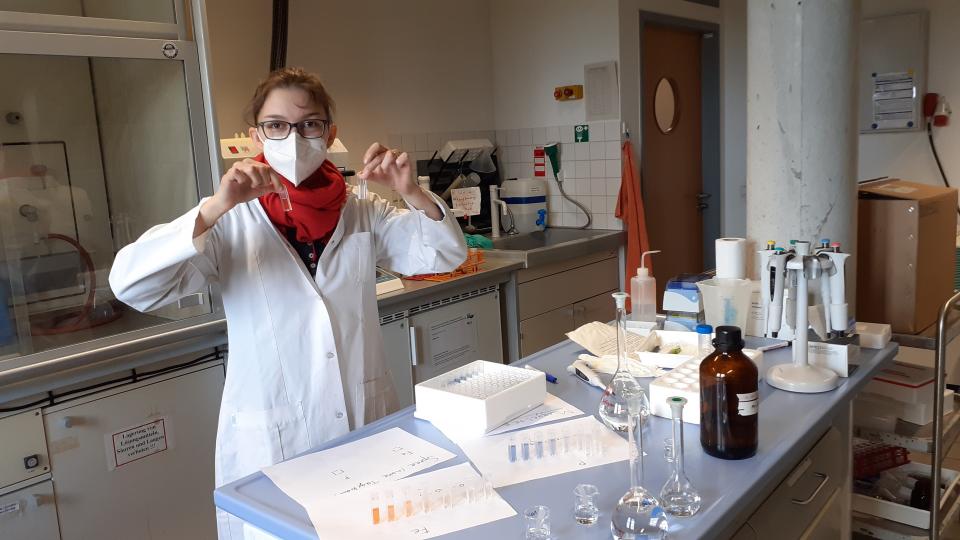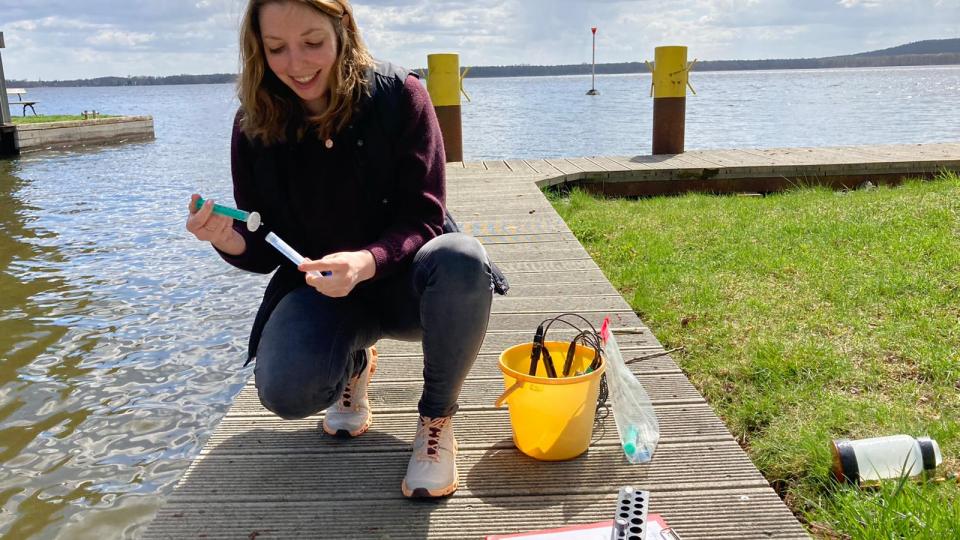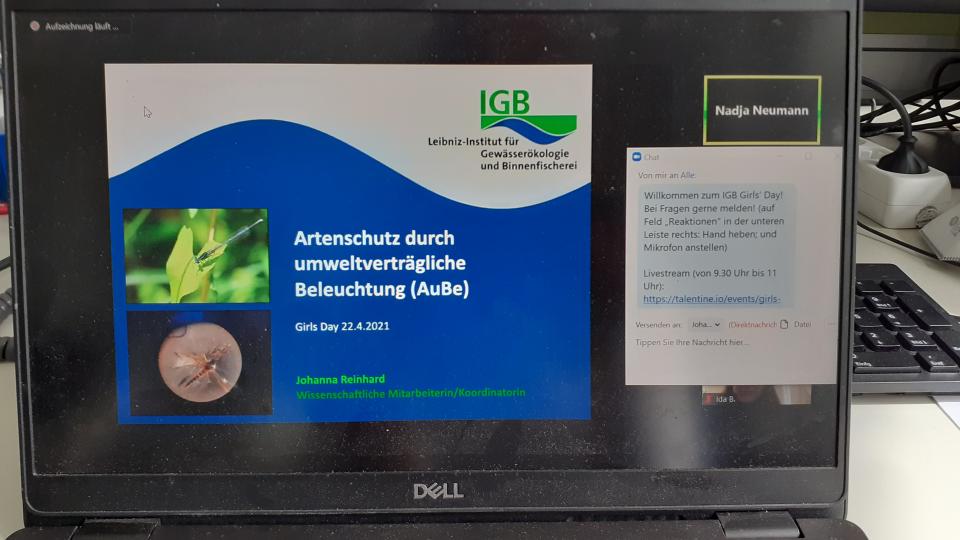Girls' Day on April 22 took place virtually this year. I Graphic: Girls' Day
Giulia Friedland demonstrated how substances from mining affect water bodies. She explained how iron, sulfate and trace metals are introduced into the water and sediments of the Spree River as a result of opencast lignite mining in the Lusatian region in northeastern Germany.
Lena-Marie Kuhlemann investigates the water cycle in Berlin. She studies the main water bodies and smaller rivers in Berlin in seasonal sampling and weekly spot checks to learn how vulnerable they are to prolonged drought and heavy rainfall. Giulia Friedland and Lena-Marie Kuhlemann took the schoolgirls on a live broadcast of a sampling session at Müggelsee and sample analysis in the lab.
Johanna Reinhard presented her project "Species protection through environmentally friendly lighting" where she works closely with citizens to reduce the ecological impact of artificial light through intelligent lighting concepts. This is because many insects die at night from streetlights and other light sources. Using a microscope, she showed that insects are "ohh" and not "eww."
Dear Giulia, Lena-Marie and Johanna, thank you for your commitment!

Doctoral student Giulia Friedland shows a sample evaluation in the laboratory via video stream. Photo: Nadja Neumann

Doctoral student Lena-Marie Kuhlemann filters a water sample from Lake Müggelsee - shown live on the virtual Girls' Day. I Photo: Giulia Friedland

Johanna Reinhard explained how light pollution affects insects. I Photo: Nadja Neumann


